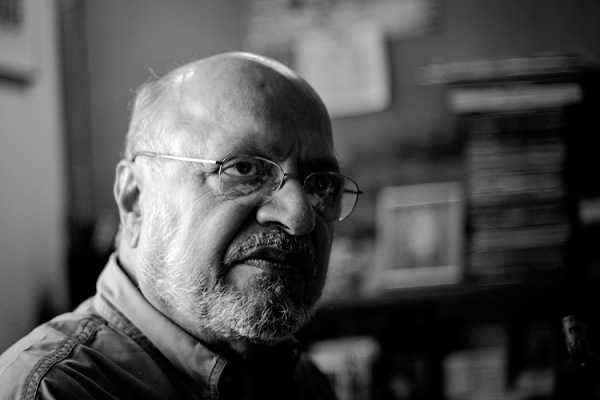This letter was published on the author’s blog a few days ago and subsequently Mr Shyam Benegal has distanced himself from Vedanta..we publish this piece here to inform more readers why it is important to see through Vedanta’s attempt to mislead the masses with its advertising clout.
Dear Mr Shyam Benegal
Greetings !
I met you first on a flight from Kuala Lumpur to Mumbai in 2008 , and I considered myself to be lucky to meet you and used the opportunity to talk to you for Dr Binayak Sen’s Release, the video
http://www.youtube.com/watch?v=CnMQac3Wf5g
I was so delighted to find a voice in you for human rights and a voice for the voiceless- the tribals, who have been suppressed and have been the victims of the so called development model aggressively supported by the Government and our middle class for whom infrastructure amounts to development of the nation and will make india the super power at the expense of displacing the tribals.
Today I am aghast to know that you are in the jury of Vedanta’s “Creating Happiness Film Competition” , a short film contest for India’s student film makers by Vedanta.
The claim by Vedanta on their website http://www.creatinghappiness.in/about_us.html is the biggest scam of the century.
Do you know ?
Corporate mining giant Vedanta has been violating the human rights of tribals in Odisha for many years now. The Dongria Kondhs, a primitive tribe, has been forced to relinquish their rights over their homeland, and cultural and livelihood resources to accommodate the company’s refinery and mines complex. The company’s mines, no matter how benign, will rip through a hill that is the sacred deity of the tribe that has lived in these hills for centuries without leaving a trace on the sensitive ecosystem of the biodiverse watershed forests. The hills that are slotted for mining are home to the Golden Gecko, a species that figures in IUCN’s Red List of endangered species. The Niyamgiri Mountains are the primary source of drinking water for the entire area, apart from being the source of two important rivers of Orissa Nagabali and Vamsadhara which are the lifeline of at least 50000 people downstream.
Zambia’s biggest mining company, Konkola Copper Mine (KCM), owned by Vendanta, in 2007 caused widespread water pollution when its acidic effluent entered the Kafue River, the main source of water of about 2 million people in the area. In Armenia it underwent a criminal investigation into its unlawful gold operations and was disallowed from any further activity in the country. In November 2007 the government of Norway withdrew all investments in Vedanta after its Ethical Council concluded the company ‘has caused serious damage to people and to the environment as a result of its economic activities’
A special monitoring body set up by the Supreme Court of India, the Central Empowered Committee, has submitted several reports highlighting the irregularities and corruption and recommended that the permission to mine the rich forests of the area should not be granted to the company. This report was also important in the decision of the Norwegian Council of Ethics ( See: CENTRAL%20EMPOWERED%20COMMITTEE%20report.doc for this report).
Research by Amnesty International and other local and international groups documents the serious and continuing pollution caused by the refinery’s operations. Despite the string of decisions against Vedanta, the company has failed to remedy the pollution.
The 2010 Indian Ministry of Environment and Forests ( MoEF) report says govt-panel-says-vedanta-violating-guidelines_446875.html
“That displacement, loss of livelihood, pollution, non-payment of compensation of land and objections to the project and its effects are some of the causes for discontent and protest” & “That these are aspects that are integral to the lives of the Dongria Kondh (local tribes people) and do not appear to have been considered while deciding to open up the mountain top for mining,”
The latest high court verdict states that Vedanta cannot circumvent conditions issued by India’s Ministry of Environment and Forests (MoEF), stipulating that plans for expansion of the refinery should go through a fresh environmental and social impact assessment and a public hearing process. Residents of 12 villages who live in the shadow of the massive refinery – mostly Majhi Kondh Adivasi (Indigenous) and Dalit communities who rely on agriculture for their livelihoods – have long campaigned against the expansion.
India’s great land grab continues, with police forcibly evicting tribal villagers in Orissa from land sold to UK-based Vedanta Resources to use as a toxic waste dump . Activist Satyabadi Naik’s shocking video of police crackdown on a peaceful protest by women of Rengopalli and other villages against Vedanta’s toxic Red Mud Pond in Lanjigarh. This video was recorded on 23 Jan 2012. Watch the Video urgent-villagers-protest-against-vedanta-red-mud-pond
Vedanta is not creating happiness but it is faking happiness, and in the short films below you will see the REAL FACE OF VEDANTA
The Real Face of Vedanta
Niyamgiri – The Mountain of Law
iii. The Protector of the Streams
iv. Controversy over best environmental management award to vedanta
http://www.youtube.com/watch?v=r_FYSGMwoII&feature=youtu.be
I hope after reading my letter and seeing the videos you will also pull out from the Jury of Vedanta like Gul Panag did, when she became aware of the various human rights violations by Vedanta. The film competition ends on March 20, 2012 and I hope you will truly stand for human rights of the people of Odisha.
Infact, I would like to invite you to be on the jury of an independent film competition on human rights violations by corporates “ Faking Happiness “, I will send you the details soon.
Regards
Adv Kamayani Bali Mahabal
Mumbai
Feb , 20, 2012
Kamayani Bali Mahabal is a clinical psychologist, lawyer and human rights activist who pitches for human rights , health rights, women’s health and women’s rights, and other issues of social justice. She blogs at http://kractivist.wordpress.com/






